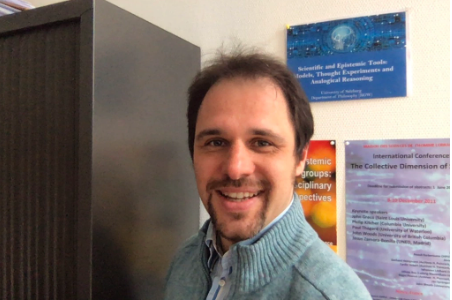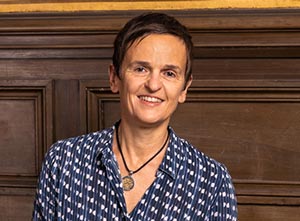Collection
Research Integrity, Norms of Good Practices, and Misconduct across Scientific Fields: a Philosophical Perspective
- Submission status
- Open
- Open for submission from
- 06 March 2024
- Submission deadline
- 01 September 2024
This topical collection is devoted to investigations related to Research Integrity, Scientific Misconduct and Deviance, and Norms of Good Practices across Scientific Fields. Submissions that directly tackle these questions or relate them to already debated issues such as values in science, the ethics of science, responsible research and innovation, scientific methodology, or the reproducibility crisis in science are welcome.
This topical collection aims to stimulate research concerning research integrity and scientific deviance, provide a broader perspective and more unified perspective on the general analysis of scientific norms, and offer contributions that clarify, if not orientate, discussions about research policy and regulation of science.
We encourage analyses that are sensitive to the specificity of scientific fields.
All relevant methodologies are welcome, including conceptual analysis, empirical perspectives based on case studies, data, or meta-analysis, and formal investigations. In particular, contributions may come from traditions such as mainstream epistemology, philosophical analysis of scientific method, empirical, qualitative, and formal social epistemology of science, data-based investigations about misconduct, or discussions concerning reproducibility issues or methodological standards across science.
Finally, contributions relying on relevant material drawn from relevant disciplines and shedding light on the social, epistemic, cognitive, and institutional factors or dimensions behind research integrity and scientific misconduct are specifically welcome.
Appropriate Topics for Submission include, among others:
-Discussions on the causal analysis of scientific misconduct
-Analysis of the individual and collective factors that favor integrity violations
-Conceptual issues related to fraud, misconduct, and questionable research practices
-Classifications of scientific deviance and their suitability for causal claims
-Differences (if any) between the explanation of research integrity violations, questionable research practices, and scientific misconduct
-Norms and rules in science, their rationales, and their relations to research integrity
-Relations between discussions concerning research integrity, science ethics, responsible research and innovation, open science, and scientific methodology
-Biases in research and their relation to research integrity
-Values in Science and their relation to research integrity
-Issues related to the reproducibility/replicability crisis
-Discussions on sample size, statistical power, and related norms
-Methodological discussions about norms of good practices across particular fields
-Ways of decreasing research integrity violations
-Analysis of how to teach research integrity efficiently across scientific communities
-Research integrity within and outside science, e.g., with regards to science communication towards society
-Perspective differences about research integrity between scientific actors
-Differences in perspectives about research integrity between researchers/scientific institutions and other actors (e.g. policy makers, elected officials, private stakeholders)
-Explanations of research integrity violations and misconducts as reported by the media and the political world
-Trust in science and its relation to research integrity
-Political interferences in science and their relation to research integrity
-Similarities and differences between scientific fields on all the above issues
-Differences between private, public, citizen, and regulatory science on all the above issues
For further information, please contact the guest editors at the following email address: ahp-tc-synthese-integrity@univ-lorraine.fr
Editors
-
Aurélien Allard
I am a moral philosopher and psychologist. I received my PhD from Paris 8 University in 2019, where I studied the idea of deservingness both from a normative and empirical perspective. After a first post-doc at UC Davis in Meta-Science, I am currently conducting a second post-doc at the University of Geneva, where I am working with philosopher Christine Clavien to develop nudges to teach research integrity. Within the broad issue of integrity, I have a special interest in studying the implications of the reproducibility crisis in social and bio-medical sciences.
-
Cyrille Imbert
I was trained as a philosopher of science in Paris 1 Panthéon Sorbonne after being a student at École Normale Supérieure (A/L 98). I also studied classics while an undergraduate, physics, and computer science during my doctoral years. After my Ph.D. (2004-2008), I got a permanent job at CNRS in 2009. I obtained my habilitation thesis (Habilitation à Diriger des Recherches in 2019 from the University of Lyon III. I am now affiliated to Archives Poincaré (UMR 7117), an institute devoted mainly to history of science, philosophy of science, and philosophy.
-
Stéphanie Ruphy
Stéphanie Ruphy is professor of philosophy of science at the Ecole normale nupérieure – Université PSL in Paris. She is currently Director of the French Office for Research Integrity.




